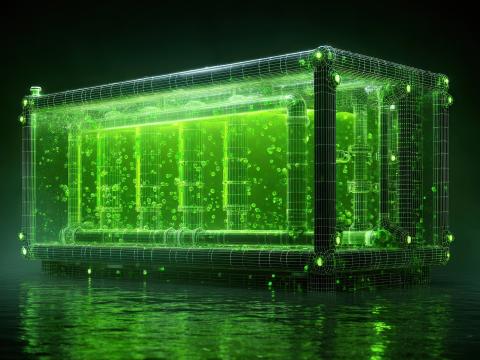U.S. Forces Korea Embraces Web 2.0 for C2
U.S. Forces Korea is recognizing the benefits of Web 2.0 capabilities and is using them to transform its decision-making processes.
Anyone who spends time on the Internet is well aware of the benefits that Web 2.0 provides. U.S. Forces Korea recognizes these attributes and is transforming its decision-making capabilities by employing Web tools, according to authors Maj. Vincent W. Lau, USAF, and David P. Martin in Command Takes Leap To Web-Centric Knowledge Sharing, published in the current issue of SIGNAL Magazine. Even though U.S. Forces Korea adopted a command-wide communications strategy to foster collaboration, the authors point out that it still had to deal with huge quantities of fragmented data stored throughout its systems. Col. Russell Wilson, USAF, chief of the U.S. Forces Korea Knowledge Operations and Initiatives Division (KOIN), describes the command's initial efforts at online knowledge sharing:
Early on, there was no single, overarching strategy for our knowledge management, so units just posted their data on the networks anywhere and everywhere they could.
Leaders recognize that the power of Web 2.0 on defense C2 networks is in making warfighters more effective. It provides tighter decision-making loops and more relevant information through collaboration and networking. Success in this arena, the authors point out, will be based on two principles: authoritative data enabling users to trust that their information source is the definitive source from which all collaboration and work are based; and data availability anywhere, under any condition, ranging from peacetime to war. U.S. Forces Korea's commander, Gen. Walter L. Sharp, USA, sought to fulfill this vision:
I would like to go to a place on [our C2 networks] where data is authoritative and accessible to people who want to get it. [I asked my staff to] identify ubiquitous and authoritative information flow [to] flatten the organization.
From the Virtual Knowledge Wall's (VkW's) versions, U.S. Forces Korea has moved to the Microsoft Office SharePoint Server (MOSS) because it offers advanced Web 2.0 capabilities. With KOIN leading the way on the knowledge management front, U.S. Forces Korea has positioned itself--using a platform such as MOSS--to tackle the paradigm shift swiftly and smartly, moving quickly from static to dynamic Web portals across all the networks. The command will add to the capabilities of its C2 networks as a force multiplier to give U.S. Forces Korea even more ability to "fight and win tonight." We welcome you to share your thoughts here in the comments below, or you can read the full article here.




Comments